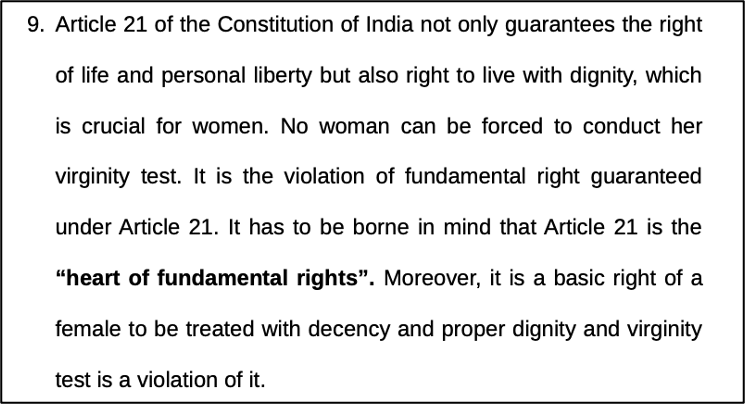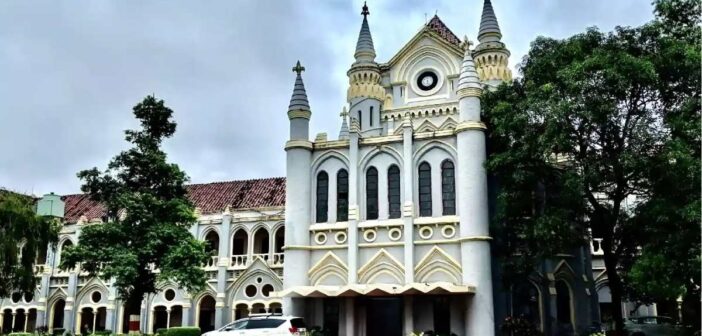In this edition of the Court Judgements review, we look at the Odisha HC’s order that children born of a void marriage are entitled to inherit the self-acquired property of their father, MP HC’s order that a person’s legal and basic rights cannot be taken away just because a biometric machine failed to recognize them, Chhattisgarh HC’s ruling that virginity tests on woman are unconstitutional, among others.
Odisha HC: Children born of a void marriage are entitled to inherit the self-acquired property of their father
The case, Sandhya Rani Sahoo @ Mohanty vs. Anusaya Mohanty before the Odisha HC revolves around the legal determination of the rightful heir to the estate of the late Kailash Chandra Mohanty. Anasuya Mohanty filed a suit before the Family Court in Cuttack, claiming to be the legally wedded wife of the deceased, having married him on 05 June 1966 under Hindu customs, and being the mother of his two sons. She challenged the legitimacy of Sandhya Rani Sahoo’s claim, who also presented herself as the wife of the deceased. Anasuya contended that Sandhya, a nurse who had worked with Kailash, had no lawful marriage with him and that any relationship they had was adulterous or void under law.
Initially, the Family Court ruled in favour of Anasuya on 29 October 2021, declaring her the legally wedded wife and thus the rightful heir to Kailash’s estate. Sandhya appealed, stating that due to her advocate’s death and pandemic-related disruptions, she was denied a fair hearing. The High Court accepted her plea, set aside the Family Court’s decision, and remanded the matter for fresh adjudication. Upon rehearing, however, the Family Court reiterated its earlier stance on 12 December 2023, once again recognizing Anasuya as the legal wife and heir.
On further appeal, the Odisha HC bench of Justices Bibhu Prasad Routray and Chittaranjan Dash upheld the Family Court’s findings regarding the validity of Anasuya’s marriage. However, it also addressed the legal status of the two children born from the deceased’s relationship with Sandhya. Referring to Section 16 of the Hindu Marriage Act, 1955, and relevant case law, the Court held that children born of a void marriage are legitimate and are entitled to inherit the self-acquired property of their father as Class-I heirs under the Hindu Succession Act, 1956. Moreover, they are also entitled to a share in the ancestral property, limited to what the father would have received if a notional partition had occurred during his lifetime.
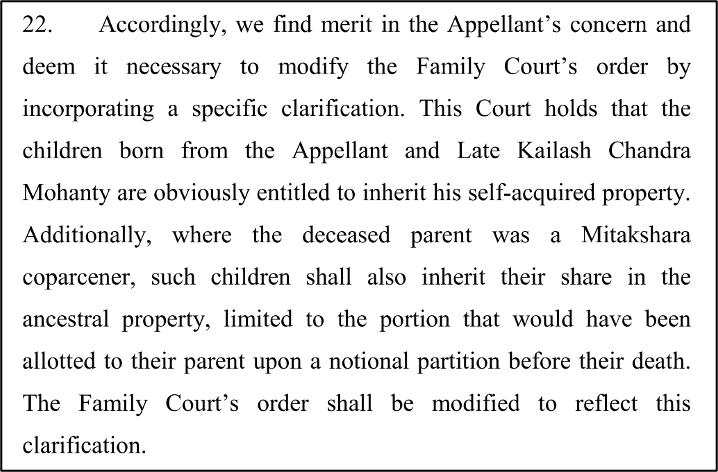
Calcutta HC: Merely because only either of the parent being non-tribal, one cannot be denied, the Scheduled Tribe certificate
The first and second petitioners in the case, Nazreen Banu and another vs. the Andaman and Nicobar Administration and others are mother and daughter. The daughter is an aspirant for the NEET entrance examination. The petitioners applied online for a Scheduled Tribe (ST) certificate for the daughter in September 2024. However, no action was taken, and the application remained pending. This led to the filing of the present writ petition.
Earlier, the High Court had directed the jurisdictional Tehsildar to consider the application. Subsequently, the Tehsildar rejected the application. The reason given was that although the mother belongs to the Nicobarese Scheduled Tribe, the father of the second petitioner does not. It was also stated that the daughter herself was brought up in a forward community and did not maintain ties with the tribal community. Aggrieved by this decision, the petitioners approached the High Court.
Justice Aniruddha Roy of the Calcutta HC emphasized that once a Scheduled Tribe is constitutionally recognized, any individual seeking an ST certificate is entitled to a fair process. If the individual meets the legal requirements, the right to receive the certificate becomes a constitutional right. The Bench examined the declaration issued in favour of the second petitioner and noted that proper fact-finding inquiries had been carried out before its issuance. The declaration bore the signatures and seals of the concerned authorities too.
The Court found that the withdrawal of the declaration by the Chairman of the Tribal Council was done without hearing the petitioners. It held that such a unilateral action, taken without due process, could not take away the petitioner’s right to the certificate. Allowing the writ petition, the Bench set aside the Tehsildar’s decision and directed that, considering the urgency, it directed the jurisdictional Tehsildar issue the certificate to the daughter within 24 working hours from the communication of the judgment.
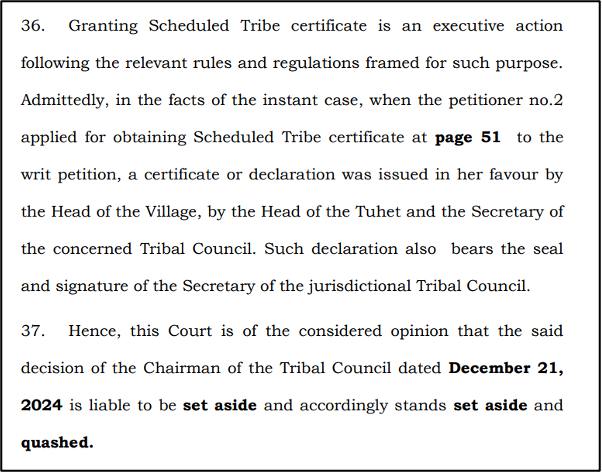
Bombay HC: Citizens do not have a right to be cremated or buried at a specific location
The case, Lakhani’s Blue Waves Co-operative Housing Society Ltd vs. The Chairman, CIDCO is regarding the dispute over the construction of a crematorium in a certain plot in Mumbai. The petitioners, who are co-operative societies located nearby, argued that the construction of the crematorium is illegal and harmful to residents, as the land was originally reserved for a petrol pump in the Development Plan. They raised concerns about health hazards, foul smell, and the emotional impact on children due to its proximity to homes, shops, and a school. Despite repeated complaints, the structure was not removed.
CIDCO, the planning authority, initially approved the crematorium years ago but later cancelled the plan due to technical and environmental issues. A new, fully functional crematorium was built instead, about 3.5 kilometres away. CIDCO attempted to demolish the structure on plot 176 but was stopped by protesting villagers. The intervening villagers from Kharkopar claimed that the crematorium has existed on Plot 176 for over 250 years and was legally supported by CIDCO in the past. They argued that moving it would create hardship for local residents and insisted on retaining it.
The Bombay High Court bench of Justices Ajay Gadkari and Kamal Khata observed that citizens do not have a right to be cremated or buried at a specific location. Since CIDCO, the competent planning authority, has already provided a new functional crematorium nearby, it upheld CIDCO’s decision to remove the one on Plot 176. The Court allowed the petition and directed CIDCO to use the said land strictly in accordance with the sanctioned development plan.
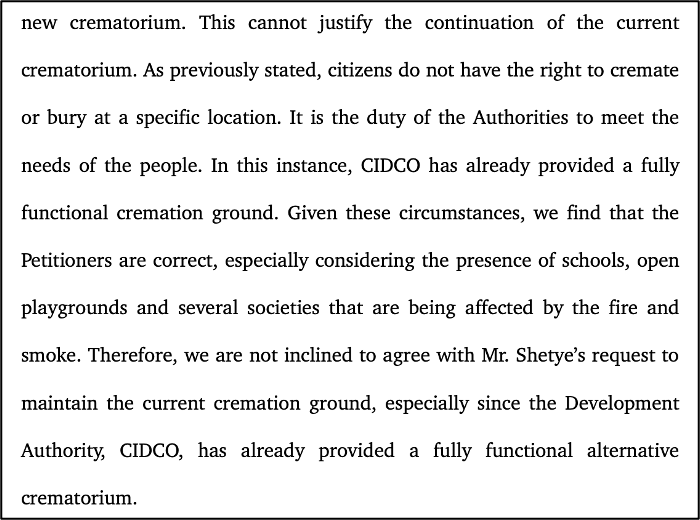
MP HC: A person’s legal and basic rights cannot be taken away just because a machine failed to recognize them
The petitioner in the case, Vinod Kumar Meera vs. LIC, had applied for the post of Assistant with LIC in response to a 2019 recruitment advertisement. As part of the selection process, biometric verification was conducted by Tata Consultancy Services (TCS). The petitioner successfully cleared the written examination. However, his fingerprint matched during entry into the exam hall but failed to match during exit. A similar issue occurred during document verification. He submitted a written declaration stating the mismatch was due to skin issues. LIC later rejected his appointment based on TCS’s biometric report, but did not share the report with the petitioner. LIC also argued that the decision of the biometric authority (TCS) was final and binding as per the recruitment terms.
The Madhya Pradesh HC’s single judge bench of Justice Subodh Abhyankar observed that TCS was not a necessary party to the case, as it was merely acting on LIC’s instructions. The Court said biometric checks help prevent discrepancies, but they can fail for reasons beyond control. Further, the Court stated that a person’s legal and fundamental right cannot be curtailed or side-lined only on account of failure of a machine to recognize him, for whatever be the reasons. It added that a person’s identity is not lost when he is not recognized by a machine, and that their identity can be verified through valid documents like Aadhaar, PAN, and a driving license.
The Court quashed LIC’s rejection order and directed the issuance of an appointment letter within four weeks, based on document-based identity verification, while denying monetary benefits for the delay period.
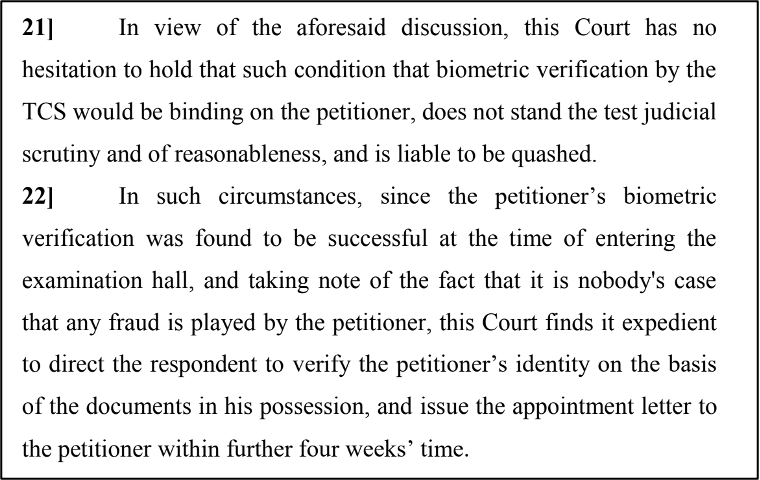
Chhattisgarh HC: Virginity test on woman is violation of her rights and dignity
The case X vs. Y involves a Criminal Revision Petition filed by a husband under Section 19(4) of the Family Courts Act, 1984, challenging the Family Court’s rejection of his request for a virginity test of his wife during an ongoing maintenance case.
The wife had filed an application under Section 144 of BNSS, 2023, seeking ₹20,000 as monthly maintenance. The couple was married in April 2023 and began living together. However, the wife later told her family that the husband was impotent and refused to cohabit or establish a marital relationship with him. In response, the husband accused her of having an illicit relationship with her brother-in-law and requested a virginity test to prove there had been no sexual contact between them.
The Family Court rejected the husband’s plea, and the High Court upheld this decision. Justice Arvind Kumar Verma of the Chhattisgarh HC referred to Supreme Court and Delhi High Court rulings declaring virginity tests unconstitutional, citing Article 21 of the Constitution, which protects an individual’s right to dignity and privacy. The Court emphasized that no woman can be forced to undergo a virginity test, as it violates her fundamental rights and dignity.
The Court further stated that if the husband wishes to disprove the allegation of impotence, he is free to undergo his own medical tests or present other evidence. However, he cannot infringe upon his wife’s rights in the process. Citing this, the Court dismissed the case.
